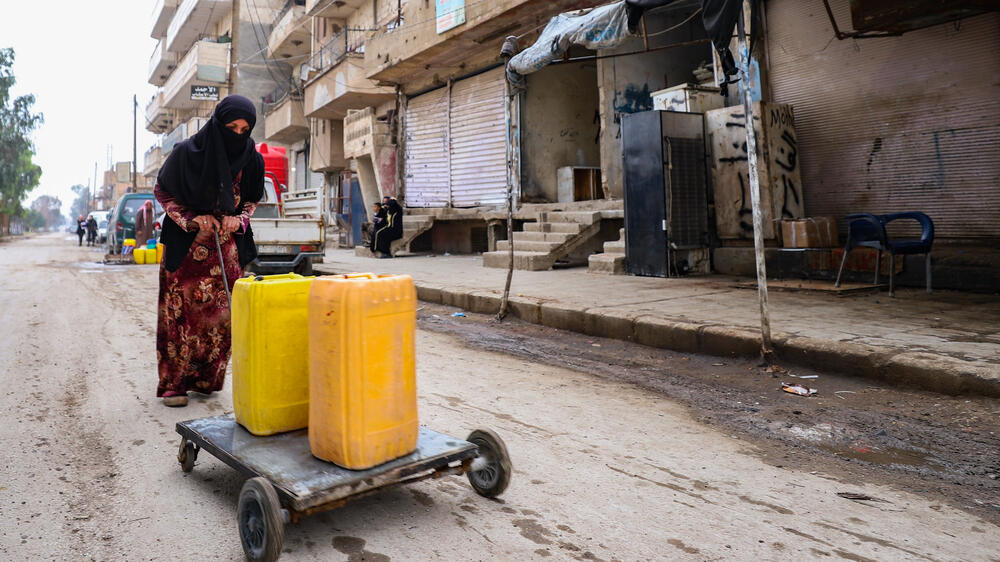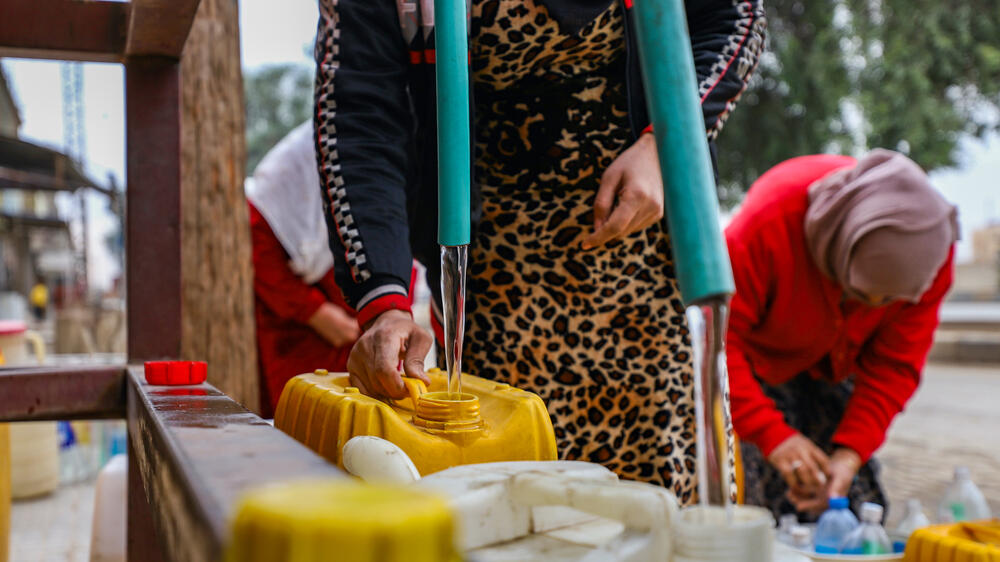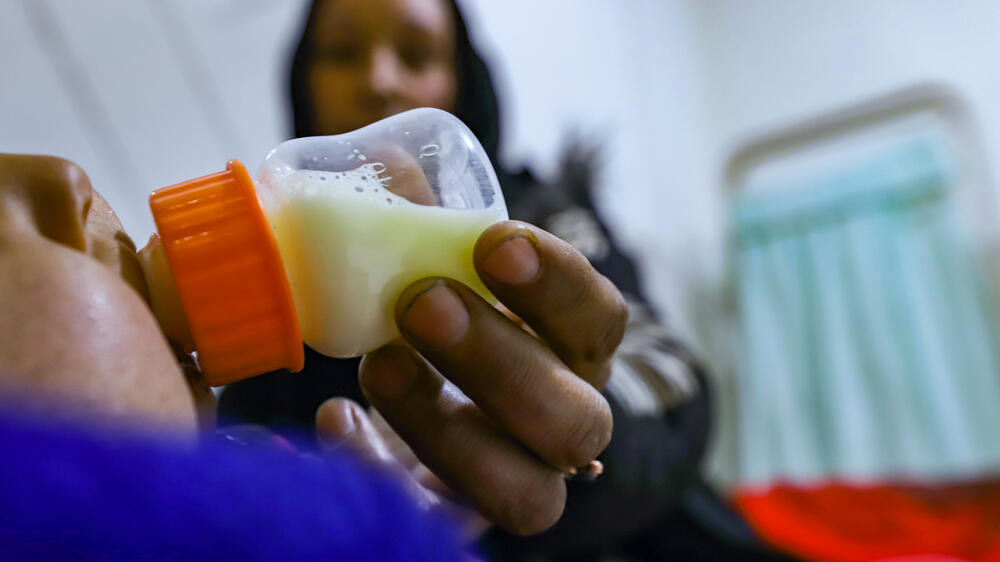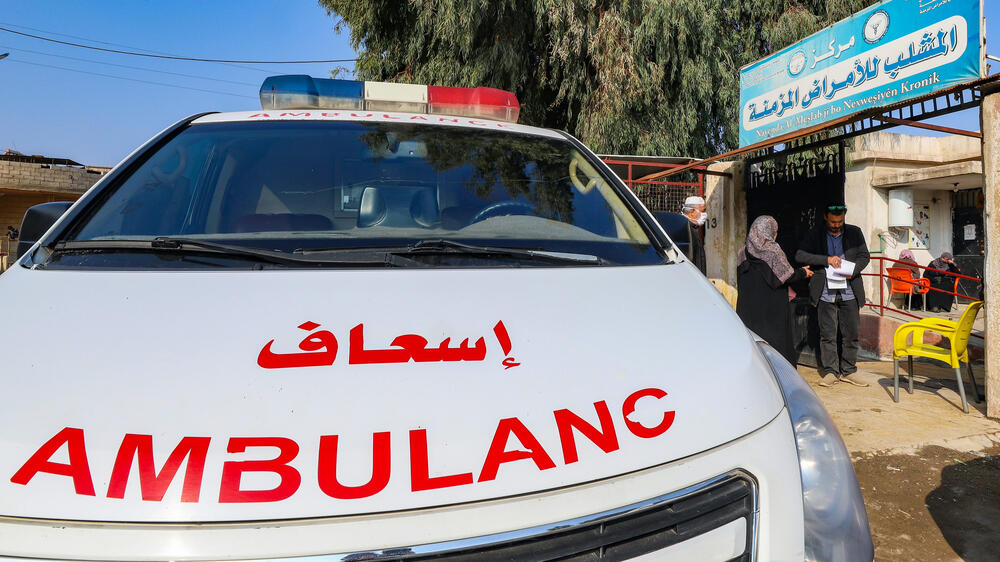Syria: Challenges in northeast persist, humanitarian needs increasing
6 November 2025
People in northeast Syria continue to struggle with access to healthcare, water, and food, according to an assessment conducted earlier this year in Al-Hasakah governorate by Médecins Sans Frontières (MSF). MSF staff spoke with more than 150 families from both local communities and internally displaced persons.
MSF’s assessment in June confirmed people face severe barriers to accessing basic services. Among respondents, 90 per cent reported postponing or avoiding healthcare due to high costs for consultations and medication, the lack of nearby or functioning facilities, and the burden of transportation.
“We were unable to secure medication for my father’s chronic disease for over four months. His condition worsened and became complicated, eventually requiring urgent surgical intervention. We did everything we could to secure the money for the operation, but we were too late. My father passed away”, says *Khoula, a resident of Al-Hasakah.
Eighty-five per cent of households reported that they or a family member is living with at least one non-communicable disease (NCD).
To address these challenges, MSF is working in collaboration with the local health authority to support clinics specifically designed for the treatment of NCDs in Al-Hasakah and Raqqa governorates.
Water scarcity
In northeast Syria, widespread water scarcity, driven by climate change, the weaponization of water resources, prolonged droughts, and excessive groundwater extraction have been made worse by frequent damage to water infrastructure, including Allouk and Tishreen water stations.
Since 2019, repeated interruptions to Alouk station, the main source of safe water for nearly one million people, have forced families to rely on unsafe and unregulated water sources. Survey results indicated only 37 per cent of households can consistently access sufficient water to meet basic hygiene and domestic needs.
“We bathe once every five days now. We have to choose between being clean and being hydrated”, says *Khalid, a 26-year-old man who has been displaced to Al-Hasakah during the years of the conflict.
The assessment highlights water insecurity disproportionately affects women, who are primarily responsible for securing household water, often walk long distances, facing physical exhaustion, harassment, and exploitation.
“I was collecting our household’s water allocation from the communal water tank. The man managing the distribution insisted I step inside so he could “help me”. As he leaned in, he touched me inappropriately. I was so shaken that I left without taking the water, since then, I’ve never gone back alone”, says *Fatima, a 27-year-old woman from Al-Hasakah.
Women reported some private vendors have offered water in exchange for sex, which is unacceptable and highlights the intersection of vulnerability, gender, and survival.
MSF teams have recently rehabilitated 12 boreholes in Al-Hasakah and supported the rehabilitation of two water stations (Al Aziziah and Al Hamma) in readiness for any potential startup of Alouk and ensure access to safe water for local communities.
Economic vulnerability, food insecurity
Economic vulnerability is widespread, with median household incomes reported at $150 US per month, ranging from as low as $15 US to $200 US. Food has become increasingly out of reach for lower-income families, with 77 per cent of households surveyed reporting food shortages multiple times per month.
“The crisis in northeast Syria is not only about conflict; it’s about the daily erosion of people’s ability to survive with dignity. These figures underscore a deteriorating humanitarian situation”, says Barbara Hessel, MSF head of programmes in northeast Syria.
*Khadija, a mother of four, shared her struggles: “As a mother, my children are the most important part of my life; I often skip meals so they can have enough to eat. Still, we struggle to provide them with the proper nutrition they need. It breaks me to see them asking for food I cannot always give. I feel hopeless”.
While most families depend on local markets for their food, their purchasing power is insufficient to meet even the most basic dietary needs.
In Raqqa, our teams run inpatient and outpatient feeding units to provide care for children suffering from malnutrition.
Barriers to return
Topping these challenges, many internally displaced persons interviewed in Al-Hasakah reported being unable to return to where they’re from due to ongoing security and safety concerns, lack of shelter, and the absence of humanitarian support for returnees.
“Even if we’re willing to return, there’s nothing to return to – no aid, no shelter, no support. Without help, going back isn’t just hard – it’s impossible.", says *Al’aa, a displaced woman from Ras-Alain/ Serekaniye.
MSF calls for action
MSF is urging donors, humanitarian agencies, and authorities to scale up funding and coordination to prevent further deterioration of essential services. All parties to the ongoing conflict must protect civilian infrastructure, including water stations, in accordance with international humanitarian law.
“People are being forced to make impossible choices, between buying food, medicine, or water,” says Hessel. “Without immediate investment and political will, thousands will continue to face preventable suffering.”
*Names have been changed at the request of those interviewed to protect their privacy.
MSF in Syria
MSF operates in Syria where it can, but ongoing insecurity and access constraints severely limit our activities and hamper our ability to provide humanitarian assistance that matches the scale of the needs.




